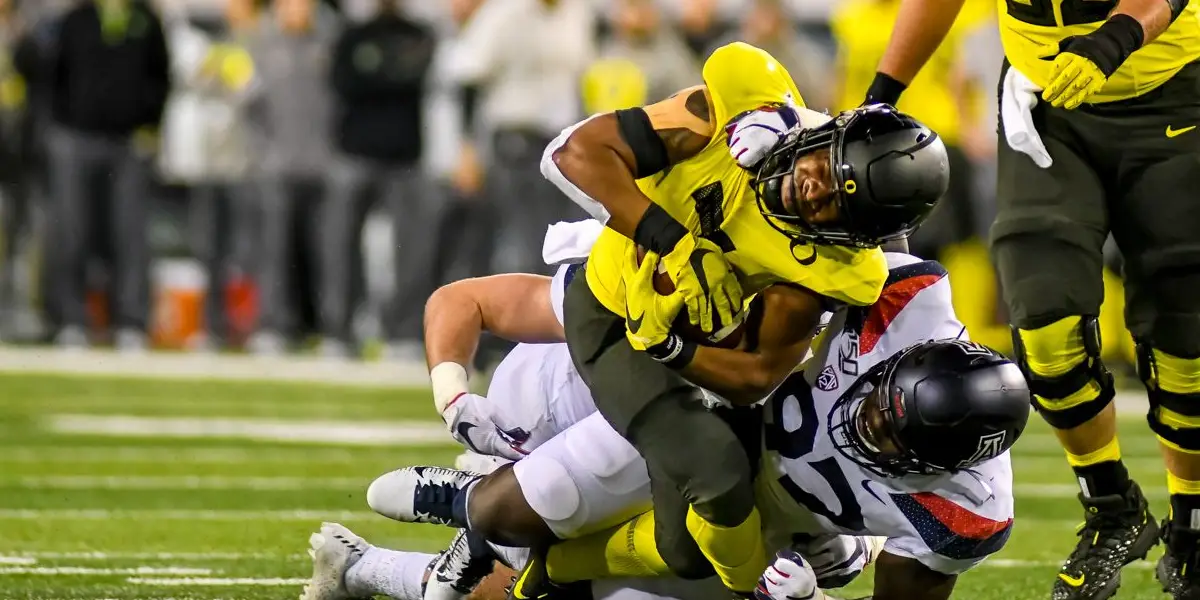Concussions are common among athletes who participate in contact sports, and Ducks football is no exception, of course. When a player is involved with a collision, a concussion happens when the brain gets banged around and the neurons get damaged. This causes them to lose the ability to effectively transfer brain signals, and often emit instant behavior changes that are evident on the field.
Beyond evident immediate effects, concussions can cause a plethora of symptoms. They can cause problems with cognition and emotion in addition to the physical issues that accompany concussions. It is important for the player to get rest after suffering a concussion. This means that you should avoid physical activity and any mental strain, but athletes have been pushed away from this, to “tough out” their injuries and be brave.
As some of you will remember in 2018, Justin Herbert entered concussion protocol after a debilitating loss to Arizona, a game in which he went 24/48 passing and scored a meager 15 points to the Wildcats’ 44 points. This was a point where player safety was in peak conversation, after the NFL and NCAA met to discuss cohesively about player safety, and how players will be evaluated in concussion protocol for future injuries.
The most important early stage of an injury is being able to identify symptoms effectively, something in which the Oregon training staff takes pride in today. It may not have been clear in the first evaluation of Herbert through that game that he needed to be off the field, but it’s important to note that he eventually was put in concussion protocol, and it was a day after the game.
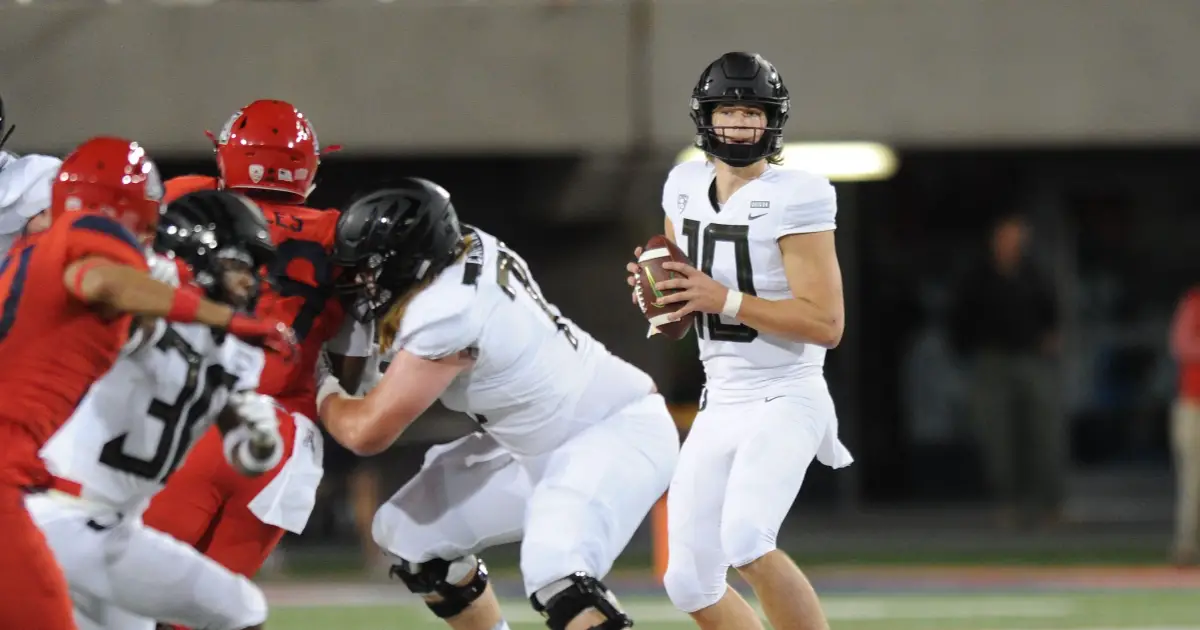
Herbert didn’t take the ‘big hit’ in this game, but it was evident that it wasn’t just the offense being off; he needed treatment.
Symptoms of a Concussion
A concussion is a mild traumatic brain injury that can change a person’s mental state. In regard to Oregon football, this will come through contact between the tackles most often, or on big hits in the open field on unsuspecting pass-catchers. They are typically not life threatening but can cause a host of serious and worrying symptoms.
The symptoms of a concussion depend greatly on the severity of the injury. Some people will lose consciousness, but some do not. A concussion can cause memory problems and confusion. After an Oregon player has a head injury, it would be common for the medical staff to ask them simple questions to see if he can answer them correctly because a concussion can impact a player’s cognition.
A concussion can also cause a drowsiness, dizziness, and blurred vision. Headaches are also a common symptom, and some of those injured will become nauseous and may even vomit. The symptoms associated with a concussion may not develop fully for hours or even days after the injury. This proves that it’s no fault of the injury staff that Herbert wasn’t pulled from the game immediately, given that the symptoms don’t always develop early on. But they still did, and the symptoms can vary heavily between injuries.
A great point of analysis is how both Dillon Mitchell and Justin Herbert went into concussion protocol in 2018, as stated before. Mitchell went into the protocol following the game as well, after absorbing a ton of contact off the ball in a game Ducks fans would love to forget. Herbert was banged around on numerous occasions, but he didn’t have that “big hit” moment either that most of us as fans associated with concussion injuries. Without that “big shot,” concussions can be more difficult to identify early on, and affect the recovery period heavily due to continued play after initial concussion symptoms.
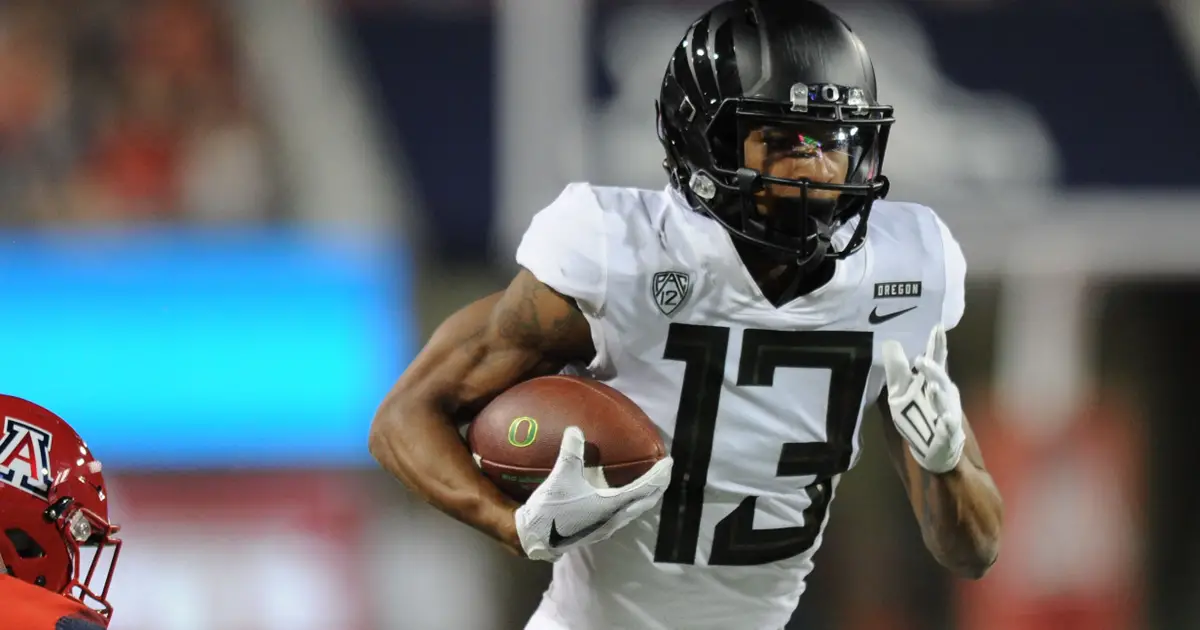
Mitchell wasn’t exposed to the ‘big hit’ either, but his movement on the field after a few collisions in the game showed he wasn’t himself early on.
The recovery period often comes with additional symptoms as well. During the recovery, a person may be more irritable or have difficult concentrating. They may also be sensitive to light and sound. It’s hard to believe a player like Herbert or Mitchell could give anything less than 100% effort, let alone be irritable or behave as anything less than a “team player,” but that just illustrates the severity of these injuries and why they need to be catered to even more heavily than they are today.
Post-Concussion Syndrome
Post-concussion syndrome is a condition that comes after a person has had a concussion although it is more likely to develop in people that are 40 years old or older. The symptoms may be similar to symptoms that are associated with mental illness.
Symptoms similar to the depression and anxiety are seen in people with post-concussion syndrome. In addition, a person who had a pre-existing mental health condition may be more likely to see these types of effects after suffering a concussion.
This actually came up recently in a 2016 lawsuit involving Pac-12 Football and former Oregon players. Headed by an Oregon lineman from the 70s, Daniel Cook, who resigned because of the after effects of concussions from his job as a school teacher.
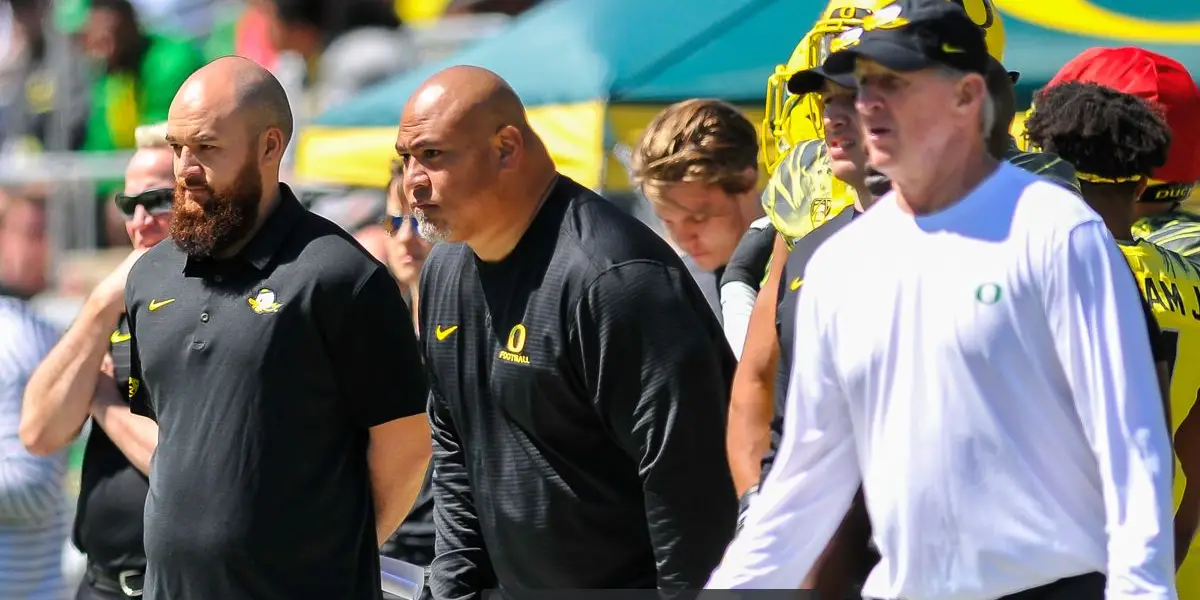
Oregon’s coaching staff will need to keep a watchful eye over these issues in the future
If you are suffering from anxiety, depression, or other concerning mental health issues then you may benefit from speaking with a mental health professional. Whether the symptoms are caused by a concussion or not, therapy may be beneficial. You can find a qualified therapist at BetterHelp and can talk to them today from the comfort of your home, something former Ducks athletes and all college/pro athletes should consider.
Concussions and Mental Health
An injury can be mentally distressing even if it is only physical. An athlete may wonder if they are going to be the same after a serious injury and may have a loss of hope. However, research indicates that concussions can cause athletes to suffer from anxiety and depression at a higher rate than athletes who suffer solely physical injuries.
One study included 198 participants who were players in the Canadian Football League. Teams perform mental health screenings at the beginning of the football season. The players who had injuries, either concussions or orthopedic injuries, were tested three times after their suffered the injury. The first test was 24 to 48 hours after the player suffered the injury, and the second test was when the players said that they were no longer having symptoms. The third and final test occurred a month after they returned to the playing field.
The tests revealed that the players who had suffered at least one concussion had greater symptoms associated with anxiety and depression than the players who had no history of concussions. This set the baseline.
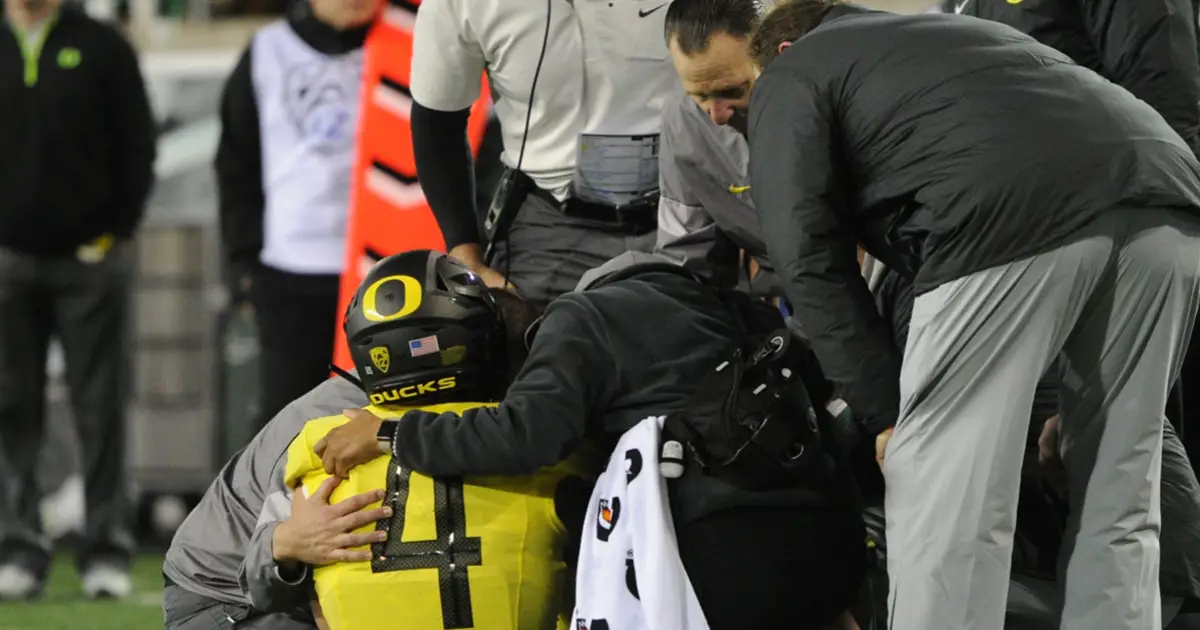
This study is important to consider in on-field evaluation, and the validity of a full evaluation from an injury that happened a few moments ago.
From the baseline, the study found that players who suffered from concussions had an increase in anxiety over the first 24 to 48 hours of the injury and an increase in depression symptoms from the time that they were asymptomatic to one month after returning to the playing field.
A different, separate study found that as many as 20 percent of those who suffer from a mild traumatic brain injury experienced mental health related symptoms. The individuals who suffered from PTSD or depression prior to the concussion were the most likely to have mental health issues following their injury. There also seems to be a correlation between thoughts of suicide and concussions.
Conclusion
Concussions can be serious, as they can cause a decline in cognitive ability and increased emotionality. The research seems to show that there is a connection between concussions and mental health. If you or someone you know has had a concussion and you notice mental health symptoms, it is best to seek the advice of a professional as we have learned from this article.
Unfortunately, the reality of concussions and their long term effects are all too real to be ignored. Thankfully there are efforts being made every day to learn more and work towards the best action in creating new protocols and evaluating old ones. Athlete safety needs to be the top priority in sport, and most importantly, all athletes.
Superstars on their respective teams may get more national attention following an injury, but all players need to be accounted for equally when evaluations and attention are given to them in sustaining a healthy life through their career and years after. Hopefully one day we can approach that for the sake of Our Beloved Ducks, and the rest of the sporting world alike.
OregonReigns
Lakeside, Oregon
Top Photo By: Craig Strobeck
Related Articles:
Ducks Football 2026: Breaking Down Strengths And Weaknesses
These Ducks Will Have Monster Second Seasons as Starters
Oregon Football: Early 2026 Ranking Projections
FishDuck Foaming Over Upside of 2026 Diamond Ducks
Unbelievable...Same SEC Stuff, Different Day
Why Oregon Football Always Belongs in the National Conversation
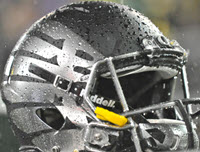
OregonReigns is an occasional contributor to FishDuck and loves his Ducks!

